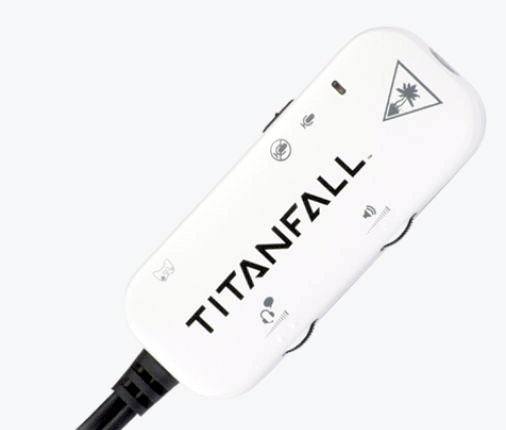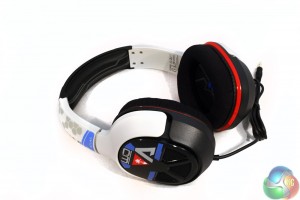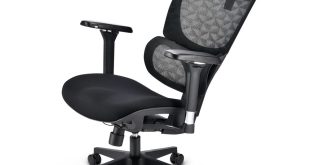Analysing a headset is a little less complicated than some of the other tests we have here at KitGuru. It generally involves the reviewer playing games, listening to music and watching movies over a couple of weeks – it's hardly strenuous stuff. While this does mean we get a relatively easy time of things, it also means that there's little in the way of hard numbers to back up our opinions. Just bear that in mind when it comes to making your own purchase – peripheral choice can be a very subjective thing.
That does not mean we do not put headsets through their paces though and this one is no different. Over an extended period of time – including usage at the Multiplay i51 LAN, I played a lot of games with the Ear Force Atlas. From modern shooters like the namesake Titanfall, to retro classics like Seven Kingdoms and haunting indie-masterpieces such as The Banner Saga.
I also listened to a variety of music from multiple genres and watched a few key scenes from some favourite movies to see how good this headset really is.
NB. The testing today was restricted to the PC.
In games, the Titanfall Atlas headset performs nicely. It's got great bass, so explosions and gunfire from heavy artillery sound fantastic. It's stereo panning is also solid, so you'll have plenty of warning if someone is sneaking up on you.
In slightly more melodic games, I did find that the sound could get a little muddy, like the headset was perhaps geared a bit too much towards the bass end of the spectrum.
Tweaking the EQ cleaned things up a bit, but I wouldn't have said the sound you get from the Atlas is bright and ‘crisp'. It has lots of power and certainly sounds good in plenty of scenarios – but it is not the cleanest of sounds.
As an aside, I used the Titanfall headset in a few Oculus Rift titles, since those tend to do situational audio very well, and I have to give this a double thumbs up for Rift compatibility. Not just because it sounds good, but because of the solid plastic frame – it doesn't creak at all when you move your head around.
This is something that most manufacturers don't take into consideration because you're staring straight ahead the whole time, but with a Rift game, where you're looking around, it's hugely important. Nothing breaks immersion quite like hearing the horrible creak of plastic as you try and dodge a fireball.
As with gaming, the same sort of feeling was present with music. Very melodic sounds were a little muted, as if the notes were rounded off. However, that tended to be most notable with classical tracks, or those with a lot of high frequencies. If you go to something a bit more thumping, a bit of dubstep or drum and bass and the Atlas really comes into its own, pumping out the low end frequencies with a satisfying kick and rumbling away at the bottom of the frequency range nicely. For a gaming oriented headset, the bass is excellent.
With movies, the Atlas did great. Dialogue comes through without issue and explosions and heartwarming sections feel just as powerful. While many of you might be thinking that you prefer to watch a movie through a speaker set instead – in general I'd agree with you – if you travel regularly, having a good set of headphones to watch a movie with is a must.
While audibly the Atlas is a pretty all round product, I wasn't quite as pleased with the comfort. The first time you put it on, it sits on your head surprisingly solidly – just like its plastic build. It's tight and doesn't move much if you shake your head. This is in contrast to a lot of other premium headsets, which gently rest against your skull without much pressure.
Fortunately you don't notice the solid grip for too long and I did find the Atlas pretty comfortable over long periods, but again it feels more like a workhorse tool rather than a premium product. I can understand if that's what Turtle Beach was going for, but when I spend £120 on a headset, I want it to have a bit more of a quality feel and I'd rather my head was cushioned with something a little softer. The head band in particular could do with a little extra padding – especially for those of us without much hair.
However, that solid build and thick, if a little heavy-handed, padding, did a good job of cancelling out noises around me. It's not perfect, but for an over the ear set it does very well and you can expect to hear pretty much nothing outside of your game when you're playing at a reasonable volume.
A detachable boom mic is always a welcome addition to a headset, as it means you can strip it off when you want to eat or speak to someone other than your online pals. It's clear Turtle Beach has put some real effort into this one too, as the quality is superb, easily one of the clearest I've heard from any gaming headset.
It did pick up some background noise which was a shame, but as long as you don't have someone shouting next to you it shouldn't be much of a problem, especially if you're using software that can filter out background noise.

If you don't adjust the sound settings, the volume dials will be back to front
There were a couple of minor, incidental problems that I should mention and they both relate to my particular add-in soundcard, the Auzentech Prelude. These issues weren't present in an external soundcard I tried and neither did they crop up when I tried the headset on my phone, but I'd be remiss if I ignored them. When plugging in the headset, Windows 7 defaulted to using the USB for audio in and the 3.5mm cable for mic-out. While that's fine, it did mean my soundcard was bypassed and the volume controller dials were reversed. This is easily fixed through the audio settings menu.
The other minor issue specific to my soundcard, was what sounded like a minor capacitor whine which came through the headphones whenever the 3.5mm cable was plugged in. Again, this didn't crop up in any other tests.
 KitGuru KitGuru.net – Tech News | Hardware News | Hardware Reviews | IOS | Mobile | Gaming | Graphics Cards
KitGuru KitGuru.net – Tech News | Hardware News | Hardware Reviews | IOS | Mobile | Gaming | Graphics Cards




They be crushin my head!